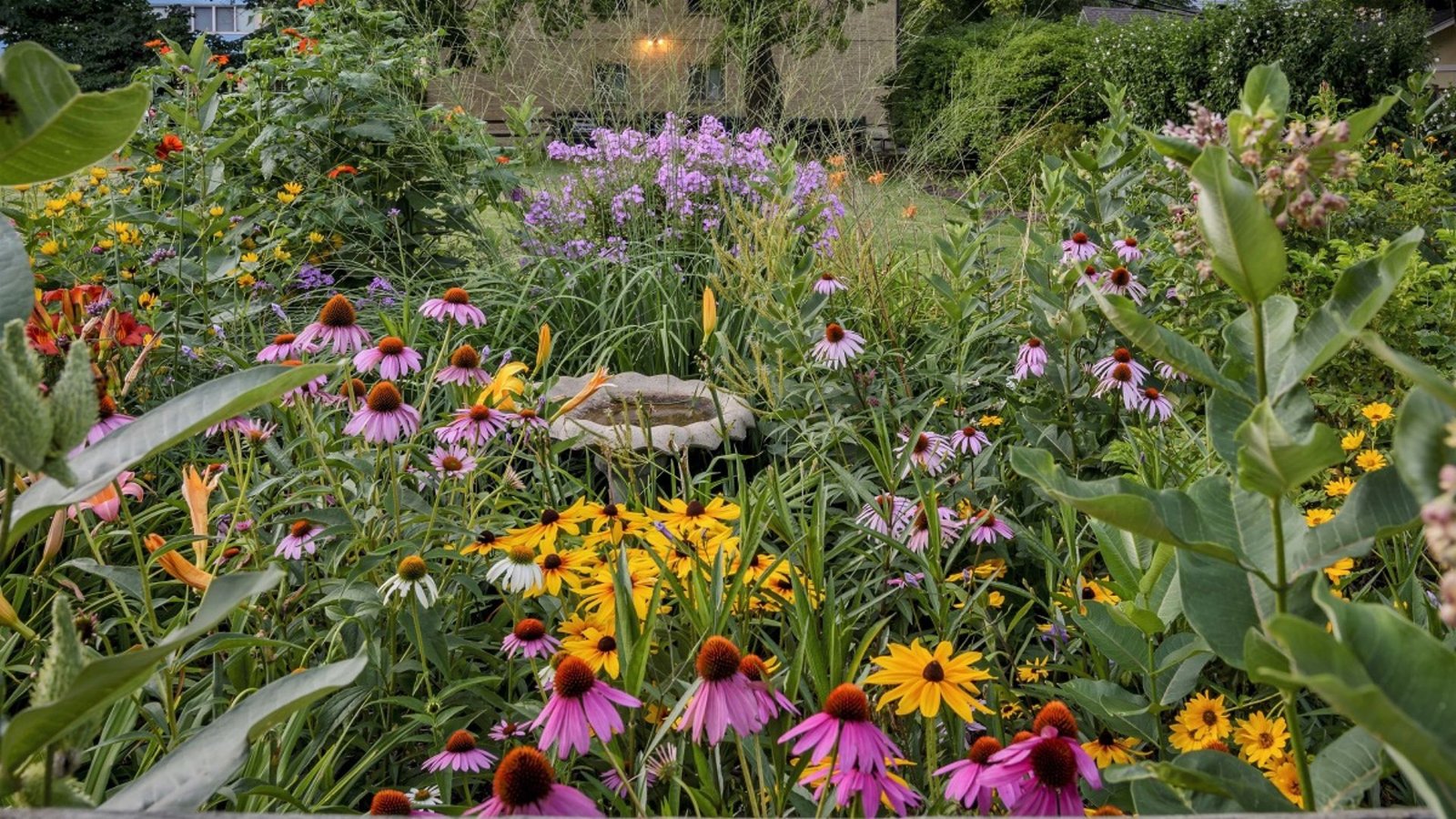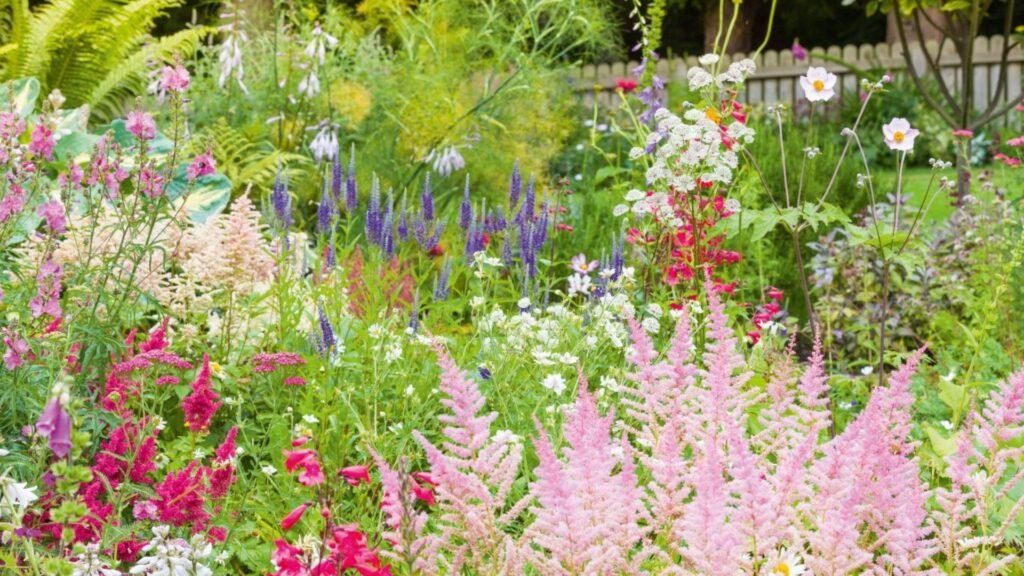|
Getting your Trinity Audio player ready...
|
Creating a garden with native flowers not only adds vibrant colours to your surroundings but also promotes sustainability by supporting local ecosystems. In this article, we’ll explore the benefits of cultivating native flowers and provide practical tips for eco-friendly gardening that aligns with nature.

Understanding the Beauty of Native Flowers
Native flowers are plants that naturally occur in a specific region and have evolved alongside local wildlife. These flowers play a crucial role in maintaining ecological balance by providing habitat and food for native insects, birds, and other creatures. Embracing these blooms in your garden ensures a harmonious relationship with the environment.
The Environmental Advantages of Native Gardens
Cultivating a garden with native flowers comes with numerous environmental benefits. Additionally, they often have built-in resistance to local pests and diseases, reducing the need for chemical interventions. This eco-friendly approach helps maintain a healthy and thriving garden ecosystem.
Supporting Biodiversity Through Native Gardens
One of the key advantages of planting native flowers is their ability to support biodiversity. These blooms attract a diverse array of pollinators, such as bees, butterflies, and hummingbirds, essential for the reproduction of both flowers and other nearby plants. By fostering a variety of native species, you contribute to the overall health of your garden ecosystem.
Tips for Designing Your Native Flower Garden
Creating a beautiful garden with native flowers involves thoughtful planning and design. Start by researching which native flowers thrive in your specific region. Consider factors such as sunlight, soil type, and water availability. Grouping plants with similar needs together ensures they receive optimal care.
Choosing the Right Native Flowers for Your Garden
When selecting native flowers for your garden, opt for a mix of species that bloom at different times of the year. This not only provides year-round visual interest but also ensures a continuous supply of nectar and pollen for pollinators.
Water-Wise Gardening with Native Flowers
Native gardens are inherently water-wise, as these plants have evolved to thrive in local climates. However, it’s essential to be mindful of water usage. Utilize mulch to retain soil moisture, and consider installing a drip irrigation system for targeted and efficient watering. This not only conserves water but also promotes the health of your flowers.
Attracting Wildlife to Your Native Flower Haven
Enhance the appeal of your garden by creating spaces for wildlife to flourish. Incorporate features such as bird baths, nesting boxes, and rocks for basking. By inviting a variety of creatures into your garden, you contribute to the overall biodiversity and create a balanced ecosystem with your flowers at the centre.
Mulching Techniques for Native Gardens
Mulching is a crucial practice in sustainable gardening with flowers. Apply a layer of organic mulch around your plants to conserve soil moisture, suppress weeds, and enhance soil fertility. Organic options like bark, straw, or compost not only provide these benefits but also break down over time, enriching the soil.
Composting for Soil Health in Native Gardens
Boost the health of your native flowers by incorporating compost into your garden routine. Composting kitchen scraps and yard waste creates nutrient-rich soil that supports plant growth. This sustainable practice reduces the need for synthetic fertilizers, aligning with the natural requirements of your native flowers.
The Economic and Ecological Value of Native Gardens
Beyond the environmental benefits, native gardens offer economic advantages by reducing the need for external inputs like pesticides and excessive water usage. Embracing a sustainable and ecologically friendly approach not only contributes to the well-being of your garden but also supports broader conservation efforts.
Conserving Water with Drought-Tolerant Native Flowers
In regions prone to drought, selecting drought-tolerant native flowers becomes paramount. These plants have adapted to arid conditions, requiring less water while still contributing to a vibrant and sustainable garden.
Seasonal Maintenance Tips for Native Flower Gardens
Adjust your gardening practices with the seasons. Regularly check for pests, remove invasive species, and provide support for taller plants. Seasonal maintenance ensures your native flower garden remains healthy and thriving year-round.
The Educational Value of Native Gardens
Transforming your outdoor space into a native flower garden offers educational opportunities. Explore the unique characteristics of each plant with family and friends. Hence, fostering a deeper appreciation for local flora and the importance of environmental conservation.
Sustainable Garden Tours
Consider opening your garden to neighbours and local communities. Conducting sustainable garden tours allows you to share your knowledge about flowers and eco-friendly gardening practices. Hence, inspires others to embrace sustainable approaches in their own outdoor spaces.
Conclusion
In conclusion, cultivating a garden with flowers is a rewarding and environmentally conscious endeavour. By understanding the unique beauty of these blooms and implementing sustainable gardening practices, you not only create a visually stunning space but also contribute to the preservation of local ecosystems. Hence, embrace the charm of native flowers as you embark on your journey towards a greener and more sustainable garden.
You may find this information useful:
Flower Varieties for Different Climates and Seasons
Gardening with Flowers: Tips for a Vibrant Garden

